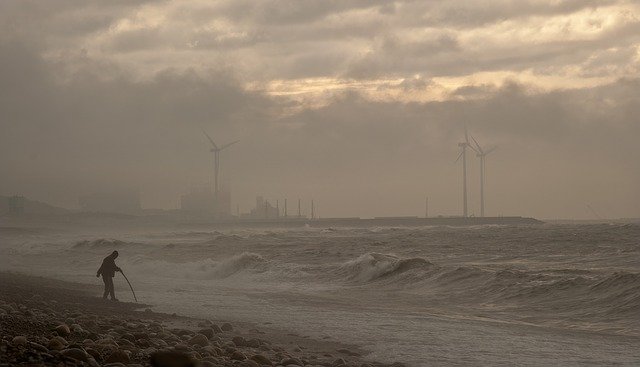
Can Floodwaters Put You At Risk For Infection?
We all know how devastating hurricanes can be for a city. Flooding destroys homes and businesses, leaving people without jobs and places to live for days, even months, at a time. One of the most recent hurricanes, Hurricane Harvey, may cause more issues than structural damage to the people of Houston, Texas.
 For many people, infection isn’t one of their main concerns after a category four hurricane hits their home. They worry about the water damage to their home after the floodwaters have gone away. But infection is a very real thing to worry about, especially during flooding. The infectious material can get picked up by floodwaters and brought into your home.
For many people, infection isn’t one of their main concerns after a category four hurricane hits their home. They worry about the water damage to their home after the floodwaters have gone away. But infection is a very real thing to worry about, especially during flooding. The infectious material can get picked up by floodwaters and brought into your home.
First responders and volunteers are at highest risk for infections, sometimes even as severe at MRSA. With all of the bacteria in the water, it is essential to wear gloves and eye protection to prevent the bacteria from entering your body. While walking through the floodwaters, it is sometimes clear to see the floating bacteria that you should stay away from. It is the microscopic bacteria that you need to be most careful of. Bacteria grow best in high moisture and warm areas, such as your home. If not treated immediately, millions of bacteria can develop in just one night.
It is dangerous to just let your house dry after flooding like this and then move back in. Hazardous pathogens that can infect you live longer on surfaces, typically up to 30 days. There is a multi-step process that is recommended for cleaning when returning to your home. The first step is to pre-clean the surface of any material that may prevent the disinfectant from reaching the bacteria. Applying the disinfectant is the next step. It is crucial to let it sit on the surface for at least 10 minutes to kill the harmful pathogens. Once the disinfectant sits for that period, you then wipe away the disinfectant and then rinse the surface again. You can then be sure all bacteria have been removed from the surface and is safe to move back into the home. If you are looking for disinfectants that kill a wide variety of germs and bacteria, we produce Sanizide Plus and Sanizide Pro sprays and wipes. They are even effective against MRSA, a highly resistant strain of bacteria.
Infections spread very easily. The smallest of wounds can be a simple way for bacteria to enter the bloodstream. Some of these wounds may be so small that you don’t realize they are even there, such as a paper cut or a scratch. Because our skin is very porous, bacterium gets quickly absorbed through our skin into our bloodstream. Touching your eyes, nose, and mouth is very dangerous if you have bacteria on your hands. This is why washing your hands often is essential, in addition to using hand sanitizers. If you do have an open wound that may have been exposed to bacteria, Safetec manufactures products such as antibiotic ointment, hydrogen peroxide spray, and isopropyl spray to clean the wound and kill the bacteria.
Cities that are devastated by hurricanes does not only need money and volunteers to recover. They need eye protection, gloves, and masks, which allow first responders and volunteers to efficiently clean without becoming infected.
References:
https://www.webmd.com/skin-problems-and-treatments/understanding-mrsa#1
https://www.issa.com/video#535
